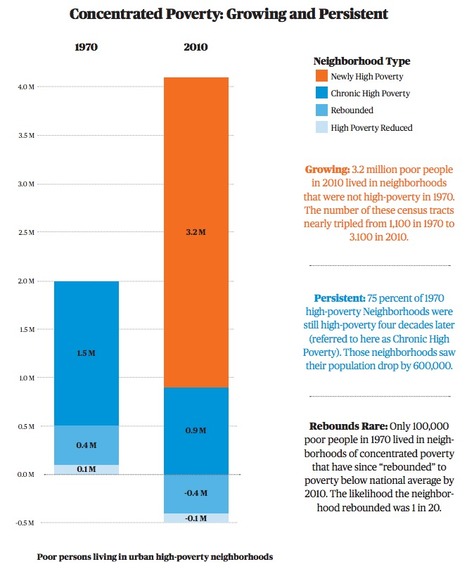Many urban neighborhoods are places of concentrated poverty, and it's killing opportunity in the US.
American cities are growing, and as they grow, they're adding lots of high-poverty neighborhoods. Nearly three times as many "high-poverty" census tracts existed in 2010 as in 1970. That's unsettling on its face but even more so when you see the havoc a poor neighborhood can wreak on a resident's chances at a good life. Forget gentrification — this is a bigger problem.
The chart above tallies up the people living in these neighborhoods in 1970 and 2010. What it shows is that the number of people living in high-poverty neighborhoods — those with poverty rates of 30 percent or more — has roughly doubled since 1970. That's because these neighborhoods of concentrated poverty have a tendency to stay that way, even while new ones sprout up.
Tags: urban, unit 7 cities, housing, economic, poverty, place, socioeconomic, neighborhood.



 Your new post is loading...
Your new post is loading...










APHG- HW Option 2